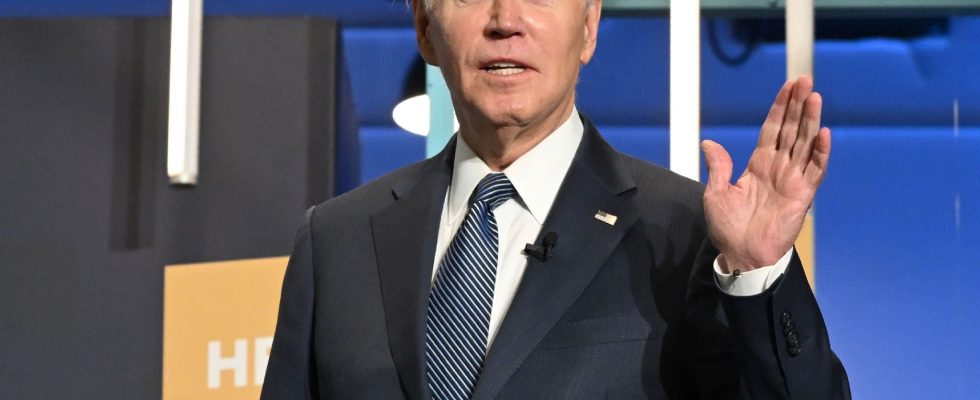It has been almost three years since Joe Biden exercised his presidential authority. In terms of foreign affairs, not much has been spared: an unprecedented war on European soil involving a great nuclear power, the phenomenal rise in power of the Chinese navy, contemporary with growing geopolitical pretensions in East Asia, and now the outbreak of the fourth Israel-Hamas war, more violent than the previous ones.
On Ukraine, the American president played a delicate role, between military support for Ukraine and absolute rejection of the risks of co-belligerence against Russia. In truth, this crest line is not new. Although the global geopolitical context and circumstances were very different, Ronald Reagan also – from 1980 to 1988 – played this policy of external – and nevertheless effective – support for the Afghan guerrillas against the Soviet invasion forces. As in the past, the United States has not lost a single soldier while weakening the adversary via a tenacious partner fighting on its ground, at certainly considerable costs, but with very lucrative prospects for future arms contracts. In this case, Pakistan at the time, around ten European NATO partners today have placed orders for state-of-the-art US fighter bombers and other new equipment with high added value. We will add that incidentally the Atlantic Alliance will have been strengthened by two new members under the Biden presidency, Finland and Sweden.
High Dragée in Beijing
Building on the success of American weapons in the hands of the Ukrainians and the strengthening of NATO, Biden can hold his own against Beijing around Taiwan. In juin 2022, he thus breaks with strategic ambiguity by asserting several times to a journalist from New York Times that the United States will not tolerate a military attack against Taiwan.
In less than three years, Washington will have strengthened its alliance with Japan, Australia, the Philippines (with the doubling of US bases!) and several oceanic archipelagos, and created a diplomatic center including states neighboring China such as Vietnam. and India, New Delhi constantly equipping itself with more American, French and Israeli, therefore Western, military equipment.
Finally, since the perpetration of the gigantic pogrom committed by Hamas in Israel on October 7, Biden supported the Jewish State not only diplomatically (in the Security Council in particular), but also militarily, with the sending and implementation on alert in the eastern Mediterranean of two naval air groups – an absolutely unprecedented fact since 1945 and clearly dissuasive, since neither Russia – despite having a military base on the Syrian coast – nor Iran and its ally the Lebanese Hezbollah, have reacted.
Undenounced Abraham Accords
However, to the great displeasure of Benjamin Netanyahu, Biden also immediately called for avoiding “the mistakes made by the United States after September 11” (revenge) and, above all, to return to the perspective of the two-state solution. . As these lines are written, the war is not over, but none of the four signatories of the 2020 Abraham Accords have denounced them, and neither Egypt nor Jordan has returned to their agreements. respective peace agreements with Israel. However, all these agreements were sponsored and are guaranteed by Washington… A delegation from the Organization of Islamic Cooperation did go to Beijing to try to put pressure on Israel, but without success other than purely rhetorical.
Ultimately, we can criticize American policies in all or part of these three very different theaters, but not contest the successes of a president who, we too often forget, was for more than two decades the president of the influential Foreign Affairs Committee of the powerful Senate, then, for eight more years, Barack Obama’s vice-president. This helps to explain this…
